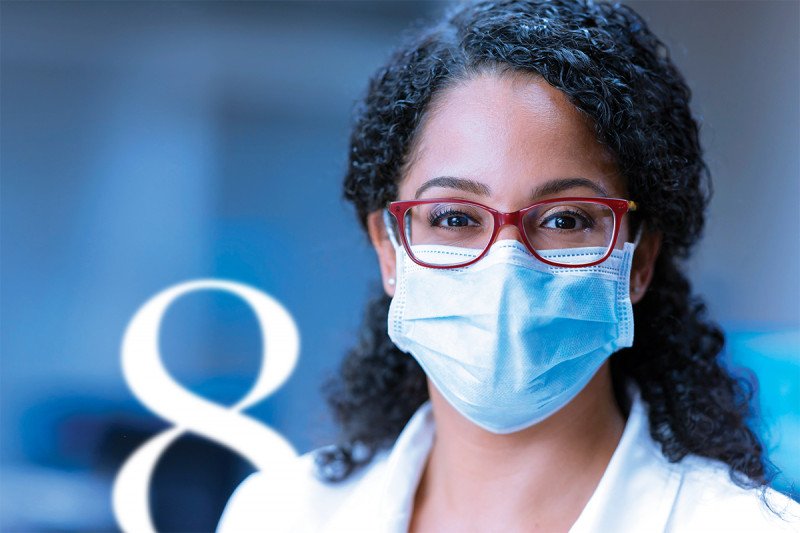
Elizabeth Cruz has been a nurse at Memorial Sloan Kettering for more than ten years. She cares for people with gastrointestinal cancers and has been in the role of Interim Nurse Leader since September 2019, overseeing more than 70 nurses. Prior to that, she was an inpatient nurse caring for women with cancer.
Why did you become a nurse?
In high school, I volunteered at a local hospital. The experience helped me realize how much I loved helping people. I went to college, got accepted into nursing school, and was the first member of my family to receive a college degree. That was a very proud moment, especially for my parents. While I was in nursing school, I joined MSK’s Clinical Assistants Program, where students spend ten weeks gaining real nursing experience. I met excellent nurses, and I really loved how they mentored me. I was hired as a nurse at MSK shortly after I graduated.
What makes oncology nursing special?
Oncology nurses are unique because we have the skills to assess subtle changes in our patients and anticipate their needs. It’s an honor to help them through their journey. I never thought I’d work in oncology, but I love the pace and the environment. One of my roles is to answer questions and debunk myths about cancer and cancer treatment. It’s so hard to hear that you or a loved one will need cancer treatment. When I first meet a patient and their loved ones, my goal is to establish trust and a strong relationship that translates into, “We are here to hold your hand every step of the way.”
What else do you tell them?
Cancer treatments have come a long way and there is an array of options. We can modify the time frame of treatment: It can be flexible so you can fit in special events that are important to you. We listen to what is valuable to you and help you live life.
What has it been like to be a nurse during COVID-19?
It’s been challenging. I’ve had moments of being nervous. But today, we know much more about COVID-19 than we did at the beginning. We’re here to help patients and care teams make the best decisions. It’s a big responsibility. Thankfully, people have jumped in to help, and we’ve always had access to personal protective equipment so that everyone can be safe.
How do you stay grounded today?
My motto is to take it day by day. It’s overwhelming if you look at it all together.
You were recently in an MSK television commercial about the importance of people continuing their cancer care during COVID-19. What was that like?
That was exciting. It sent a very positive message to our community that we’re here and we want to help. I got calls from people I hadn’t heard from in years saying, “I saw you on TV!”
What’s one lesson we as a society should learn from COVID-19?
That we can get through tough times. I’m glad that MSK staff members and our patients are getting the COVID-19 vaccine. The more people we can get vaccinated, the sooner we’ll be able to put COVID-19 behind us.
How would you define a good day at work?
When I’m able to help a patient or another nurse resolve an issue, it’s an awesome day. Whether I’m getting somebody a wheelchair or helping a nurse change a bandage, every patient interaction reminds me of why I chose this profession. •





